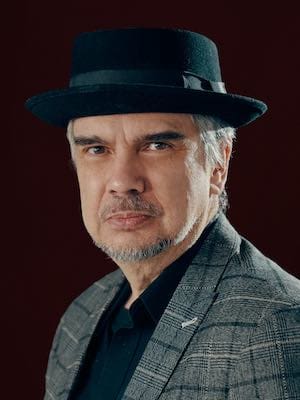One of the joys of living in Miami is crabbing. As a young girl, my wife would go to the beach to hunt crabs, placing her prey in a bucket. Later at home, her abuela would prepare them for dinner. However, on the way home she had to keep an eye on the bucket, lest a crab escape. Yet surprisingly, few ever did. Every time a crab climbed to the rim of the bucket, one of those below would pinch the would-be escapee’s leg and drag it back down.
In a way, historically oppressed groups have at times behaved like the bucket of crabs, contributing to their own oppression. At an academic conference I was challenged publicly for “airing dirty laundry” about “our” people when I critiqued intra-Hispanic oppressive structures. In other words, it was OK for me to criticize the dominant culture, but I must never turn that critical gaze inward, lest I betray my own people and expose our shortcomings.
There is a concern, and rightly so, that those in power would use our self-critical evaluation against us. While I have no doubt that some, for racist reasons, would do this, still, the cause of liberation warrants the risk. True liberation from all forms of oppression requires the critical analysis of all social structures: those within the dominant culture and, with equal intensity, those within our own culture.
This is not to excuse insensitivity when it appears from those privileged by society. Nor does this excuse those who refuse to change these present structures, hence protecting their power and privilege. Nevertheless, while recognizing the complicity of well-meaning Euroamericans with institutionalized racism, it is still important for those of us from marginalized groups to move beyond the rhetoric of blame.
To design a strategy for dealing with our disenfranchisement that solely relies on blaming our oppressors is insufficient for bringing about a justice-based community. Unfortunately, like the bucket of crabs, we are at times our own worst enemies. We Latino/as are no better than a bucket of crabs:
- When we define leadership by longevity rather than by whose actions are bringing about positive change within the community.
- When we define Hispanic leadership by how closely our “leaders” resemble the “white male ideal,” hence excluding those who are minorities within the disenfranchised group, specifically women, those with more pronounced African or Aztec features, or those from different ethnic groups.
- When we choose to live up to the stereotypes imposed upon us by the media and the dominant culture, feeling that in order to “belong” to our marginalized group we must exhibit counterproductive activities to avoid the accusation of being “too white.”
- When we are more concerned with protecting our “turf,” our fragile egos, or our “recognized” status within the disenfranchised community than with protecting the rights of our people as a whole. This is evident when we refuse to patronize a Latino/a business because they made it and we haven’t, when we refuse to participate in the events or programs established by other organizations fighting for the same goals because we see them as competitors rather than companions, or when we refuse to speak up against injustices, fearful of the consequences to our secured space.
- When we allow the dominant culture to choose for us our leaders and spokespersons, individuals indebted to those who placed them in power, thus making them overly cautious about making any waves or demanding justice for our people.
- When those who have achieved some measure of financial success refuse to reinvest their talents and resources in those minority organizations striving to raise both consciousness and the quality of life of those marginalized, or when their resources are used to hold those organizations hostage to their personal agendas.
- When our self-appointed leaders refuse to become involved in supporting those who are working to establish justice because they will neither receive the credit, nor be spotlighted.
- When we would rather sit in climate-controlled conference rooms talking about leadership rather than working selflessly within the community to bring about change. While I greatly appreciate those progressive Euroamericans who are always willing, with their resources and their person, to stand in solidarity with us, I am greatly disillusioned when our own people refuse to take ownership of our own process of liberation. As long as we allow the dominant culture to define “justice” for us, we will never achieve any form of liberation from oppressive structures. If we are unwilling to attend and participate in events designed to help our people, why should the dominant culture care?
A new mañana will dawn when we who belong to disenfranchised groups move beyond the provincial thinking that accepts the status quo because some among us benefit by the co-optation of our movements by the dominant culture. Yes, we need to boldly hold the dominant culture accountable for its lack of sensitivity to how power structures work to their benefit, but if we hope to achieve a true just social order, then we must also hold ourselves accountable.
Miguel A. De La Torre is director of the Justice & Peace Institute and associate professor of social ethics at Iliff School of Theology in Denver.
Professor of Social Ethics and Latinx Studies at Iliff School of Theology in Denver, Colorado, and a contributing correspondent at Good Faith Media.

